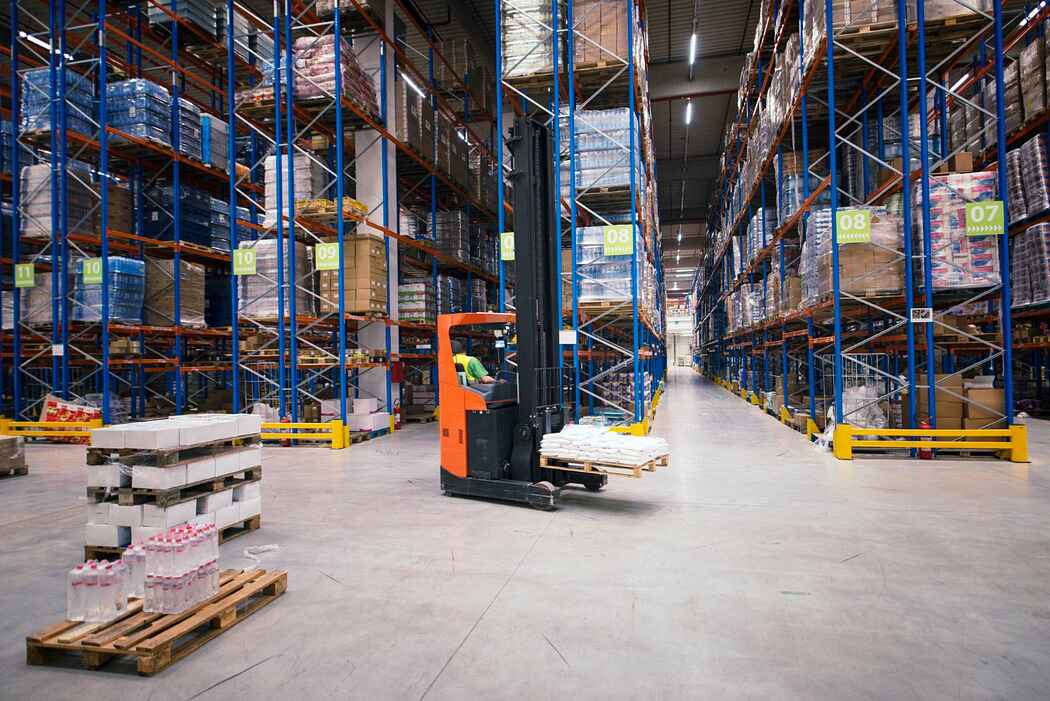Enhancing Efficiency and Reducing Environmental Impact
Recently, firms have prioritized sustainable manufacturing. It integrates environmental issues into manufacturing to improve efficiency and reduce the environmental effect. Enterprise resource planning (ERP) software helps firms accomplish sustainability goals. Manufacturing ERP software manages the supply chain, finances, and inventory.
Companies can optimize processes, decrease waste, and save money with ERP software. Now, businesses can measure and improve their environmental effect. ERP solutions in manufacturing can boost productivity, sustainability, and regulatory compliance.
To stay competitive, many businesses are adopting this technique. Sustainable manufacturing with ERP aims to promote long-term organizational viability by decreasing waste, boosting efficiency, and limiting environmental effects.
This post will discuss what is the role of ERP in sustainable manufacturing and how it makes a company more productive and environmentally friendly.
How ERP Contributes to Sustainable Manufacturing?
ERP systems can help manufacturers meet their sustainability goals. Manufacturing ERP software can help factories decrease their environmental impact and improve operational efficiency by centralizing all business functions.
ERP systems optimize resource usage, reduce waste, and increase energy efficiency. They help firms reduce their carbon footprint by providing real-time inventory, production, and transportation data. ERP software can improve supply chain management and reduce environmental impact by automating procedures and improving supplier communication.

ERP systems also aid sustainability reporting and regulatory compliance. ERP software provides data analytics and visualization tools to track and report sustainability performance. Showing stakeholders their commitment to sustainability can reduce regulatory risk and boost reputation.
Looking to take your business’s sustainability efforts to the next level? Consider upgrading your Manufacturing ERP system!
Pressure On Manufacturers to Address Sustainability Issues
Due to pressure on manufacturers to decrease their environmental imprint and health concerns, manufacturing sustainability has become a widespread issue. As consumers become more environmentally conscious, they expect sustainable products.
Therefore, producers must focus on inventory management, transportation, compliance, and supply chain greening. Manufacturing sustainability seeks to reduce environmental effects while maintaining safety and health.
To Accomplish Those Objectives, Concentrate On A Variety Of Operational Concerns, Including The Following:
Importance of Product Design
Sustainable manufacturing depends on product design, which impacts the entire production process. Manufacturers may save costs and increase sustainability by reducing waste and optimizing resources.
Reducing scrap and waste is critical to sustainable product design. Designers can use materials and procedures that produce fewer production residues, making goods easier to recycle or repurpose and minimizing over-packaging.
Sustainable product design should prioritize waste reduction, energy efficiency, durability, and repairability. Manufacturers can reduce their environmental effects and improve customer experience by making goods that use less energy and last longer.
Inventory Management Strategies
Inventory management affects replenishment frequency and environmental impact on sustainable production. Lean manufacturing requires high replacement rates, which can increase emissions and waste, which goes against sustainable manufacturing.
ERP for manufacturers reduces replenishment frequencies and optimizes inventory to meet sustainability targets. Implement inventory management systems that target waste reduction, energy efficiency, and sustainable sourcing.
Requirement of Supply Chain Integration
Sustainable manufacturing relies on the supply chain to reduce environmental impact and increase product life cycle efficiency. Manufacturers must involve supply chain partners in sustainable production, from raw material procurement to product disposal.
Suppliers, distributors, and retailers must communicate to integrate the supply chain. Manufacturers should choose suppliers with eco-friendly materials and responsible manufacturing techniques.
Leveraging Technology for Sustainable Distribution
Product delivery efficiency and environmental impact depend on distribution in sustainable manufacturing. Today’s digital technology improves tracking, inventory management, and shipping information, enhancing sustainability and customer service.
Real-time tracking, automated inventory management, and route optimization technologies can optimize distribution operations, cutting emissions and fuel efficiency.
Costs and carbon footprint decrease. Electric vehicles and drones can reduce fossil fuel use and transportation emissions, making distribution more sustainable.
What is the Role of ERP in Manufacturing Sustainability?
Manufacturers can meet sustainability goals with ERP systems. ERP systems incorporate a single software program into production planning, inventory management, accounting, and customer relationship management.
Manufacturing ERP software increases supply chain management. ERP systems enable manufacturers to swiftly detect and fix issues, decrease waste, and enhance efficiency by providing real-time visibility into supply chain processes.
ERP solutions can streamline the supply chain by synchronizing production and delivery to meet demand, minimizing inventory lifespan miles, and boosting supplier collaboration.
Product lifecycle management is another method ERP systems may help manufacturing be sustainable.
ERP systems can trace materials and components from procurement to distribution and end-of-life. This helps producers find ways to reduce waste, increase resource efficiency, and create more sustainable products.
ERP systems also give data analytics tools to measure and analyze manufacturers’ sustainability performance, identifying areas for improvement and monitoring progress toward sustainability targets.
Enhancing Sustainability in Your Business: 6 Ways ERP Can Help Drive the Change
An Enterprise Resource Planning (ERP) system can improve production efficiency, reduce cost and waste, improve supply-demand planning, and increase organizational effectiveness.
Singapore and other governments are financing and incentivizing SMEs to use digitization and automation tools like ERP systems to improve the industry and corporate performance. Look at six ways an ERP system can assist your firm in eliminating waste, prices, and sustainability goals.
ERP Optimizes Resource Consumption and Waste Reduction
The term “waste” can refer to various things; not all rubbish is physical. Decreasing waste in terms of energy and materials while simultaneously cutting down on labor costs can be accomplished through resource optimization.
Resource management is essential for organizations in many industries, whether general garbage or manufacturing waste.
For example, manufacturers, supply chains, and food and beverage companies that work with chemicals and materials that can expire and be dangerous to the environment all face the challenge of managing waste resources.
Inventory Management and Waste Reduction in Manufacturing
Waste can also result from poor inventory planning and overstock. Good ERPs can assist food and beverage companies in tracking product shelf life.
Manufacturing ERP software inventory module tells you how much food or supplies are wasted and whether it’s due to improper storage, spoiling, leakage, or human mistake. It can also tell you how much material is not consumed or not sold, so you can determine which products drive the business and which cost more than they make.
Leveraging ERP for Automation in Skeletal Workforce Scenarios
COVID-19 limits have restricted manufacturing facility personnel capacity. More manual tasks are being mechanized to compensate for the skeletal personnel, requiring planning, hardware and software upgrades, training, and adequate automation standards.
ERP for manufacturers integrates automated and manual operations to retain production and efficiency. An ERP system can manage automation protocols, hardware and software updates, and training needs, simplifying integration.
Manufacturers may improve their automation efforts and guarantee that human and automated operations seamlessly operate using an ERP system to compensate for a reduced workforce and retain efficiency.
Managing Demand Changes with an ERP System
During the epidemic, customer demand for particular products has changed, putting manufacturers in a difficult position. Businesses require the flexibility to swiftly adapt production plans, raw material purchases, and logistical preparations to meet these abrupt and unexpected demand changes.
An ERP system’s real-time inventory level data, production plan, and supply chain disruptions help manage these changes. With an ERP system, factories can plan capacity, change material procurement, monitor expenses, and optimize resource utilization.
From raw material procurement to distribution, it streamlines the supply chain and offers real-time data on customer orders, manufacturing schedules, and inventory levels. ERP for manufacturers to respond swiftly to demand changes, avoid stockouts, and avoid waste from overproduction or underutilization.
Sustainable Logistics Optimization with ERP
ERP systems streamline logistics and optimize transportation routes, lowering a company’s environmental effects. Businesses may schedule delivery most effectively using an ERP solution, saving time and resources.
The company’s carbon footprint and greenhouse gas emissions decreased. Supply chain firms can use an ERP system to plan, schedule, and alter delivery routes to distribute load cost-effectively throughout their fleet of trucks.
Real-time shipment tracking prevents unnecessary shipping. An ERP solution for logistics management may boost sustainability, efficiency, and customer satisfaction.
Utilizing Cloud Hosting
Cloud hosting changed business. Cloud-based ERP systems improve accessibility, scalability, and security for manufacturers. Cloud-based ERP solutions have automatic software updates, flexible pricing structures, and enhanced data recovery.
Cloud hosting reduces hardware, energy, and IT labor costs. Cloud-hosted ERP makes demand fluctuations and decision-making more agile. Manufacturers can become more sustainable by using cloud-based ERP solutions.
A well-designed cloud-hosted ERP system may support a company’s sustainability plan by providing real-time insight across the enterprise.
Final Worlds
Finally, ERP systems can help sustain manufacturing. Integrating supply chain partners, optimizing inventories, streamlining transportation, controlling demand change, automating processes, and using cloud hosting can boost efficiency and reduce environmental impact. ERP systems give firms real-time data and analytics to make sustainable, waste-reducing decisions.
In today’s eco-conscious society, ERP for manufacturers is complying with environmental standards. Reducing carbon emissions, waste, and energy consumption helps manufacturers meet sustainability goals and increase brand image, customer loyalty, and cost.
Sustainable manufacturing may improve operations, safeguard the environment, and improve the future. ERP solutions help firms streamline processes, minimize waste, and boost sustainability. Thus, manufacturers must install an ERP system in their sustainability plan to succeed long term.

| About Author
Rajesh R
A seasoned IT Integrations and ERP Solution Architect boasts over a decade's expertise in revolutionizing business processes through cloud-based ERP and MIS software solutions. Proficient in leveraging avant-garde technologies such as Blockchain, Al, IoT, etc in crafting bespoke software solutions. His extensive background encompasses tailor-made software solutions across diverse industries like Sales, Manufacturing, Food Processing, Warehouse Operations→ and B2B Businesses. Rajesh excels in engineering and deploying enterprise-grade business software, playing a pivotal role in Business Solution Consulting and designing intricate software solution architectures for many Fortune 500 enterprises.
Schedule Consultation with Rajesh Schedule Now